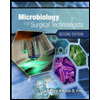Sallie, a 21-year-old patient, presents to the physician’s office with an asthma action plan form she acquired from the Internet. She states that she would like to develop the plan with the help of the nurse and physician and review it at each appointment to keep it current. She has had moderate persistent asthma for five years, and she has visited the emergency department several times in the past year with severe asthma attacks. She stated that she forgets to take her medications because the medications are at times that the hospital provided the inhalers (12 noon and midnight), and she gets confused on which inhalers are the long-acting ones and which inhaler is the short-acting rescue inhaler she is supposed to use when she has an exacerbation. She stated that if she could, she would like to take the inhalers at 8 a.m. and again at 8 p.m. The patient stated that she has a flow meter and that a respiratory therapist at the hospital taught her how to use it in the past, and he wrote down her personal best peak flow, which is 400 L/sec. The nurse reviews the patient’s medical chart and discovers that she has been prescribed the following from today’s visit: Use albuterol (Proventil): Two to four puffs every 20 minutes for up to one hour as rescue inhaler. If symptoms improve, then take the inhaler every four hours for one to two days. If no improvement after two days, call the physician Salmeterol (Serevent): 50 mcg every 12 hours Fluticasone (Flovent): 88 mcg or two puffs every 12 hours Cromolyn sodium (Nasalcrom): one spray to each nostril once daily and before being exposed to known asthma triggers. You may use the spray up to every four hours Measure peak flow meter every morning before using inhalers and record. Use peak flow meter, as needed, if you develop symptoms, such as cough, shortness of breath, wheezing, chest tightness; use of neck and chest muscles to breathe; problems talking or walking because of extreme shortness of breath Follow-up in three months Have the nurse provide education on asthma self-management and fill out the action plan that the patient brought with her today and have the physician review it and sign it The nurse also notes that the medications have not changed from the last visit. Discuss the following: Explain the medications to the patient and practice filling in the asthma action plan. Explain ways to evaluate the patient’s mastery of the content?
Sallie, a 21-year-old patient, presents to the physician’s office with an asthma action plan form she acquired from the Internet. She states that she would like to develop the plan with the help of the nurse and physician and review it at each appointment to keep it current. She has had moderate persistent asthma for five years, and she has visited the emergency department several times in the past year with severe asthma attacks. She stated that she forgets to take her medications because the medications are at times that the hospital provided the inhalers (12 noon and midnight), and she gets confused on which inhalers are the long-acting ones and which inhaler is the short-acting rescue inhaler she is supposed to use when she has an exacerbation. She stated that if she could, she would like to take the inhalers at 8 a.m. and again at 8 p.m. The patient stated that she has a flow meter and that a respiratory therapist at the hospital taught her how to use it in the past, and he wrote down her personal best peak flow, which is 400 L/sec. The nurse reviews the patient’s medical chart and discovers that she has been prescribed the following from today’s visit:
- Use albuterol (Proventil): Two to four puffs every 20 minutes for up to one hour as rescue inhaler. If symptoms improve, then take the inhaler every four hours for one to two days. If no improvement after two days, call the physician
- Salmeterol (Serevent): 50 mcg every 12 hours
- Fluticasone (Flovent): 88 mcg or two puffs every 12 hours
- Cromolyn sodium (Nasalcrom): one spray to each nostril once daily and before being exposed to known asthma triggers. You may use the spray up to every four hours
- Measure peak flow meter every morning before using inhalers and record. Use peak flow meter, as needed, if you develop symptoms, such as cough, shortness of breath, wheezing, chest tightness; use of neck and chest muscles to breathe; problems talking or walking because of extreme shortness of breath
- Follow-up in three months
- Have the nurse provide education on asthma self-management and fill out the action plan that the patient brought with her today and have the physician review it and sign it
The nurse also notes that the medications have not changed from the last visit.
Discuss the following:
- Explain the medications to the patient and practice filling in the asthma action plan.
- Explain ways to evaluate the patient’s mastery of the content?
Trending now
This is a popular solution!
Step by step
Solved in 3 steps









